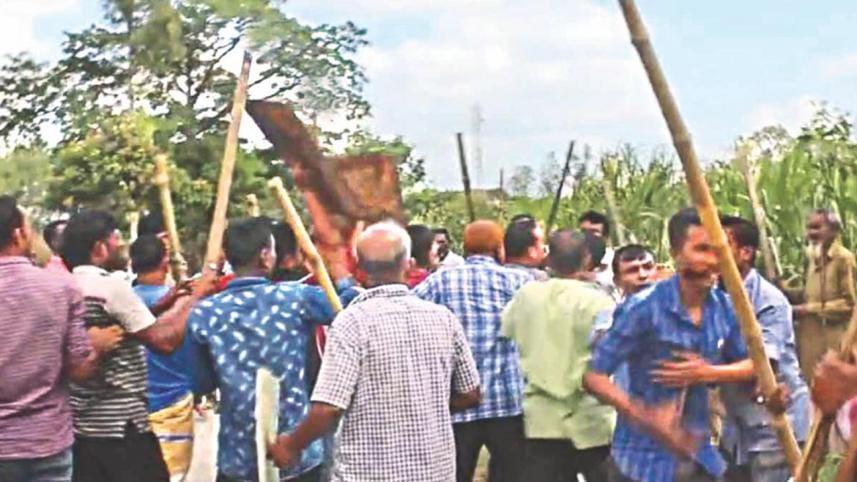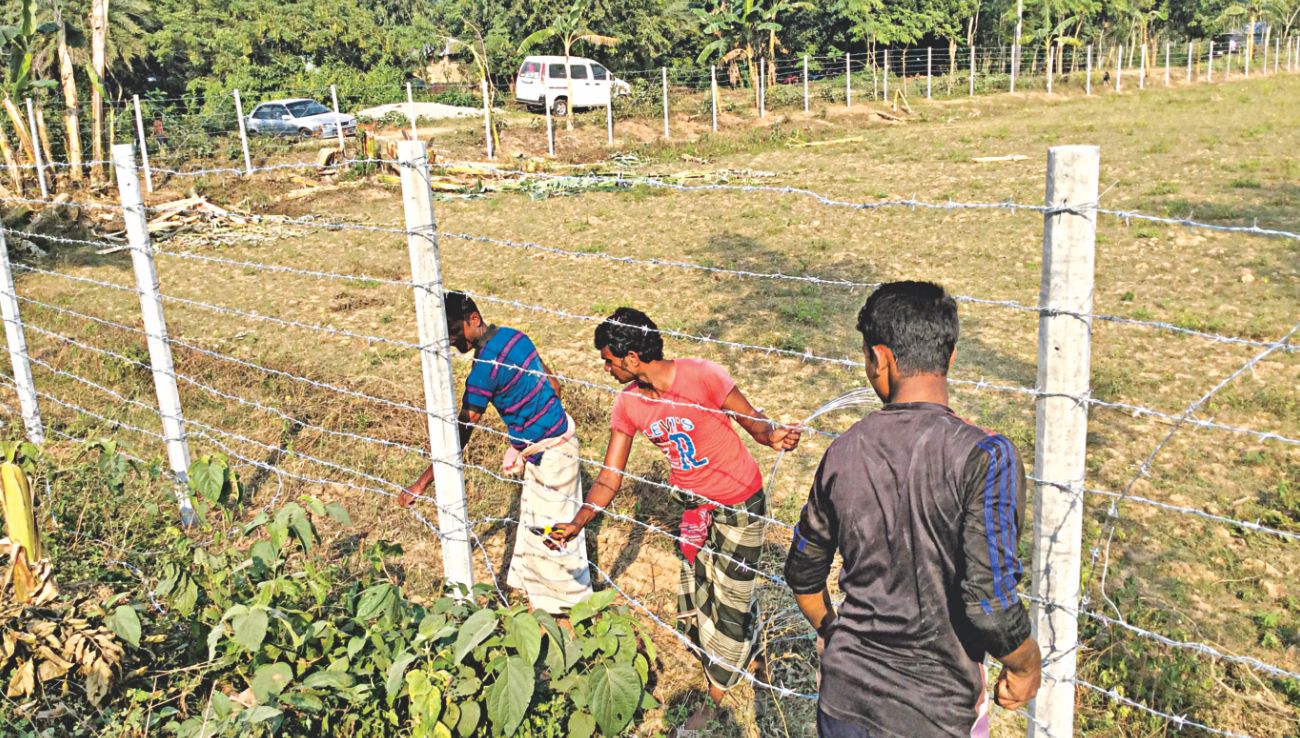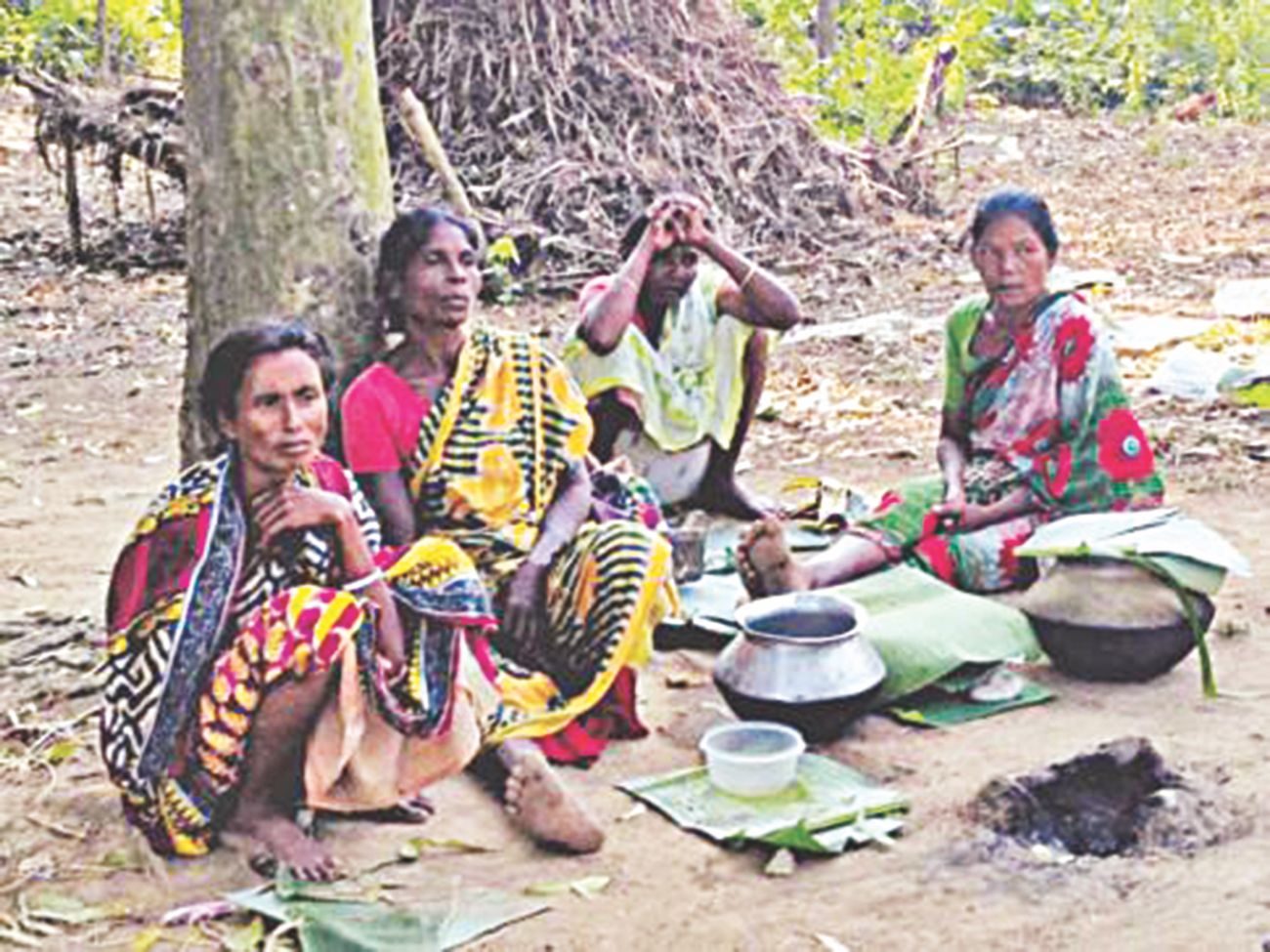90 charged for attacking Gaibandha Santal village

Police Bureau of Investigation (PBI) submitted a charge sheet against 90 people in a case filed for attacking the village of Santals in Gobindaganj upazila of Gaibandha on November 6, 2016 which left three indigenous people dead.
Former Sapmara Union Parishad Chairman Shakil Akhand Bulbul and union parishad member Shah Alam are among the charge-sheeted accused, PBI Additional Superintendent of Police (ASP) Abdul Hai told our Gaibandha correspondent.
The ASP submitted the charge sheet before the court of Gobindaganj Senior Judicial Magistrate Partha Bhadra today.
On November 6, 2016, a tripartite clash broke out between the Santals, staff of Rangpur Sugar Mills, and police over the eviction of the indigenous people from the disputed land at Shahebganj cane farm of Rangpur Sugar Mills . The clash left three Santal men dead and 20 others, including nine policemen, injured.
Santal houses were flattened with tractors later that night.
On behalf of the indigenous community, Swapan Murmu filed the case with Gobindaganj Police Station on November 16, 2016.
WHY DID THE DISPUTE START?
During the Pakistan regime in 1952, the government had acquired 1,840 acres of land at Shahebganj to set up a sugarcane farm.
The DC's office acquired the land for the then Pakistan Industrial Development Corporation, which subsequently set up Rangpur (Mahimaganj) Sugar Mills between 1954 and 1957.
In 1962, the DC office, on behalf of land owners, signed an agreement with the corporation. The deal stated that the land was acquired for cultivation of sugarcane by the mill authorities. The corporation would return the land to the government if it was used for farming any other crop.
However, the deal was violated by the mill authorities as they leased out most of the land in 2004 for cultivation of rice, wheat, mustard, tobacco and maize.
The Santals reportedly started building houses on the land about six months ago after they learnt that the mill authorities were planting other crops illegally.



 For all latest news, follow The Daily Star's Google News channel.
For all latest news, follow The Daily Star's Google News channel. 

Comments